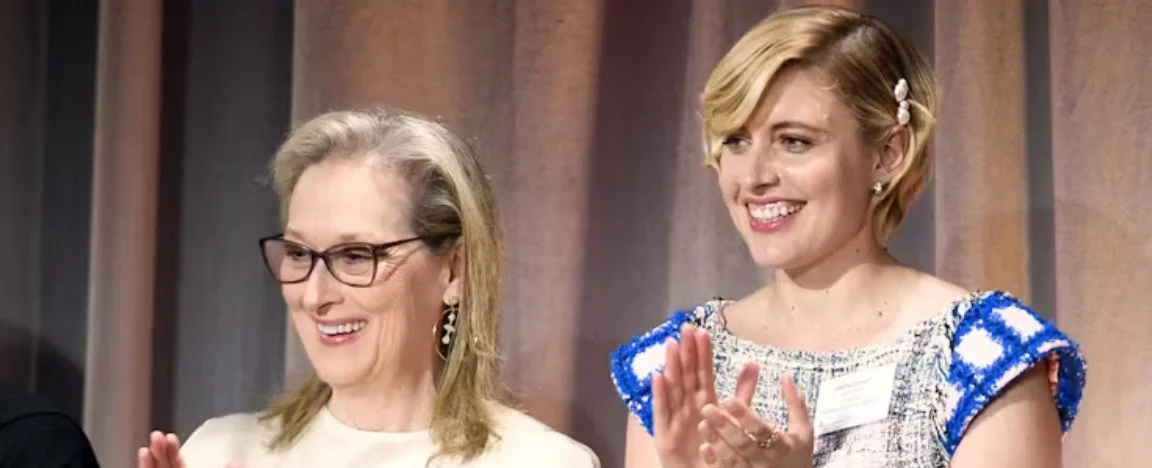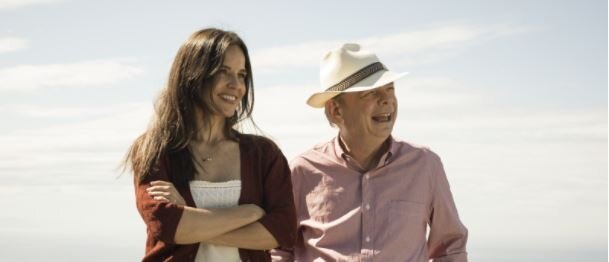Shot in the summer of 2019, against the backdrop of San Sebastien, Woody Allen‘s “Rifkin’s Festival” feels like a waste of time if you’re not a Woody completist such as myself. It’s a bland, moanful, slight riff on what Allen seems to be doing these days — making light and ineffectual romcoms. It really just dabbles around with the usual same-old-same-old. The occasional dreamy tributes to classic ’60s cinema (8 1/2, Jules and Jim, Persona) which, given Allen’s masterful penchant for being inspired by these directors in the past, feels incredibly off and forced.
Mort Rifkin (Wallace Shawn), puts himself inside these old-school cinema scenarios whilst dreaming. He’s an irritable 70something film professor from Manhattan accompanying Sue (Gina Gershon), his film publicist wife, to the San Sebastien Film festival. He immediately becomes suspicious of a younger, pretentious director named Philippe (Louis Garrel) whom he suspects Sue may be having an affair with.
Their marriage is at such a bland stage that Mort doesn’t even bother attempting to confront his wife and, instead, goes for a beautiful 30-something doctor named Jo (Elena Anaya). He’s madly in love with her. His desire for doc only accentuates when he learns she’s in a horrible marriage with turbulently emotional older artist Paco (Sergi López).
Wallace Shawn, playing the token Woody role of the dismayed romantic protagonist, is not a good fit here. I’m not sure who gave Allen the idea of casting Shawn, a New York City stalwart of theater and more-than-solid character actor, but he’s incredibly miscast in “Rifkin.” Pairing the 80-year-old actor with Gina Gershon is even more of a botched bout of casting that one has to wonder if maybe Allen just can’t find American actors who are willing to work him (for fear of being harassed and blackballed by the industry and social media).
The post-MeToo phase of Allen’s career has been detrimental to his art not necessarily because he’s been blacklisted in the States, no, it’s quite clear the man can still make movies if he wants to with European backing, his main creative problem is actually the screenwriting. You can only write so many comedies where convoluted romances occur, with obvious genre tropes sprinkled around, and Allen has, more or less, settled down in making these kinds of films since 2016 (“Cafe Society,” “A Rainy Day in New York” “Rifkin’s Festival).
The good news is that it’s not too late for Allen to go back to making quality films. His recent partnership with cinematographer-extraordinaire Vittorio Storaro has resulted in some of the most beautifully photographed films of his career. Almost every shot in these films is luminous, succulent, luscious, and inviting.
Rather than being energized by the constant jabs being thrown at him by the Farrows, the 84-year-old Allen, still working at a pace of one film per year, seems to be going through the motions these days, uninterested in tackling riskier topics. Settling down for the now-mundane stylings of an auteur past his prime. The stronger films in the latter part of his filmmaking career (“Match Point,” “Blue Jasmine,” “Irrational Man,” “Wonder Wheel,” “Midnight in Paris”) veered towards tackling more than just romance and comedy, these were films meant to depict the deepest parts of the human soul and what makes us who we are. I haven’t seen any of that in Allen’s post-MeToo films.
SCORE: D






